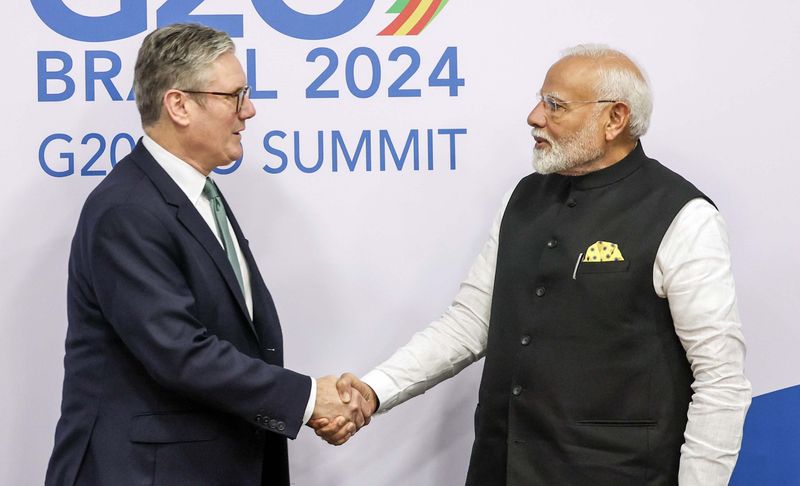India and the United Kingdom are set to sign a landmark Free Trade Agreement (FTA) on Thursday, resetting bilateral trade ties and potentially increasing two-way trade by billions of dollars annually.AdvertisementPrime Minister Narendra Modi, ahead of his visit to the UK to witness the signing of the Free Trade Agreement (FTA), said his meeting with British counterpart Keir Starmer would be an opportunity to further strengthen the economic partnership, with a focus on prosperity, growth, and job creation in both countries.India-UK bilateral trade reached a record USD 55 billion in 2024 and is projected to touch USD 100 billion within the next five years.The FTA is set to bring significant shifts in trade dynamics. Nearly 90 per cent of UK exports to India—including aerospace components, Scotch whisky, gin, cosmetics, salmon, chocolates, biscuits, and medical devices—will become cheaper under the new tariff structure.Under the agreement, tariffs on Scotch whisky and gin will drop from 150% to 75% immediately, and further to 40% over the next 10 years.UK-made cars, which currently face import duties of over 100%, will see tariffs slashed to 10%, opening up new opportunities for brands like Jaguar in the Indian market.Nearly 99% of Indian exports to the UK will be covered under the FTA, that is expected to boost sectors such as textiles, footwear, auto components, gems and jewellery, furniture, sports goods, chemicals, and machinery. Many of these products currently face UK tariffs ranging from 4% to 16%.Over 1,000 Indian companies operate in the UK, collectively employing more than 1 lakh people and generating a turnover of over USD 91 billion. Meanwhile, around 700 British companies are active in India, with a combined turnover of USD 59 billion, employing over 5 lakh people.Indian companies have invested approximately USD 20 billion (Rs 1.73 lakh crore) in the UK, while the UK’s investment in India stands at nearly USD 36 billion (Rs 3.11 lakh crore), making it India’s sixth-largest foreign investor.According to an official UK government assessment, the Free Trade Agreement “will increase GDP by £4.8 billion and UK wages by £2.2 billion each and every year in the long run. Bilateral trade is also expected to increase by £25.5 billion each and every year in the long run”.
next post


